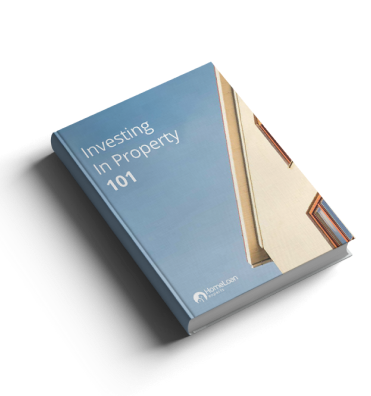Can you have your cake and eat it too?
Rentvesting has become popular among first home buyers who want to get into the property market but don’t want to give up their lifestyle.
Effectively, you spend less to live in the suburb that you want to live in until you can afford to buy your own home.
What slips most people up are the hidden costs of owning an investment property and the tax implications.
How does rentvesting work?
Instead of saving a big enough deposit or waiting until you earn a higher income, some Australians decide to rent in the area they really want to live in.
The most sought after areas tend to be metro locations or affluent suburbs with high property prices so paying rent is often cheaper than making mortgage repayments.
By investing in a reasonably-priced property in an outer suburb you pay less in loan repayments and generate some rental income.
With capital growth, you can also leverage the equity when you eventually decide to buy your own home in your dream suburb.
That’s the theory anyway!
Give us a call on 1300 889 743 or complete our free assessment form and we can discuss with you what your home buying plans are.
We’re experts in investment loans!
Property Investment Guide 101
Learn the ins & outs of investing in properties from an experienced property investor and founder of Home Loan Experts, Otto Dargan.

Who rentvests?
People who decide to go down the rentvest route tend to be between 20-34 years old and at the stage where they’re looking to buy their first home.
They:
- Don’t have equity in another property to leverage.
- Are struggling to save a deposit.
- Want to live in a metro location for career, lifestyle or family reasons but can’t afford the property prices in the area whether it’s due to a small deposit or low income.
A 2017 survey by State Custodians found that three-quarters of respondents (74%) believe rentvesting is a good strategy for those struggling to buy their first property.
There seems to have also been a large generational shift in mindset, with around 26% of Generation Y respondents saying that it’s more desirable to live in a better quality rental home than a poor quality mortgaged home.
This compares to 19% of baby boomers.
Typically, the rentvesters that get this strategy right are those who are working towards increasing their income through career advancement and building wealth.
They also live within their means so they can maximise their return on investment (ROI) on their investment property.
Check out the rentvesting case study below to see where this strategy works.
What are the benefits?
Live the life you want
The main benefit is being able to live in the area you want.
It may be for practical reasons such as being close to work or public transport.
Usually, it’s for lifestyle reasons such as being close to great pubs, food, entertainment and all of the cultural benefits of living in popular locations.
Get on the property ladder sooner
A close second is being able to get into the property market sooner, build wealth and put yourself in a position to buy your own home in the future.
Tax benefits
All interest payments, maintenance costs and ongoing costs such as council rates, property management fees and insurance are tax deductible in an investment property.
As a renter, you also don’t incur any maintenance costs.
When you own a property, none of these costs are tax-deductible.
Good for when your life changes suddenly
If your situation changes suddenly and you need to move, it’s much easier to do this as a renter than if you were living in the home you purchased.
For example, you may need to move for work, or you just got married or you’re expecting children and need somewhere bigger to live.
Renting is also much cheaper because you don’t have to pay capital gains tax (CGT), solicitor’s fees and the other costs associated with a selling a property.
You can just pick up and move on.
Feel like rentvesting is right for you?
Call us on 1300 889 743 or complete our online enquiry form.
We can provide you with a free suburb report for a specific address so you can make an informed decision.
We cannot provide specific advice as a mortgage broker but we can help you crunch some numbers and get you an investment loan that’s right for your needs and goals.
What are the drawbacks?
CGT is a killer
Taxwise, rentvesting can be a good strategy for borrowers who are diligent with their spending and do their homework upfront.
What you can’t escape is CGT, which you’ll be charged on any gain you make when selling your investment property.
Here’s a golden tip: investment properties that are held for more than 12 months will only incur tax on half of any gain.
Of course, you can avoid CGT altogether when selling an owner occupied home.
You’re at the mercy of landlords
As is the fate with all renters, you could be given anywhere between 30-90 days notice to vacate the property depending on your state.
Just as you have the freedom to move on, the nature of renting may be detrimental to your career or if you have a young family.
You’re also open to the risks of the rental market
The rental market can be tight for prime locations, particularly for CBD and metro locations.
This is particularly true of inner city apartments.
If you’re handed a termination notice, you may find yourself struggling to buy a comparably-priced property in a comparable location.
Rent is higher in affluent suburbs
The trade off for living in an area that you love is higher living costs including rent.
It’s like taking one step forward and two steps back until you’re eventually in a position to buy your own home.
On top of that, a rising property market often sees the cost of rent parody mortgage repayments for comparable property types in comparable locations.
Rent is dead money
No matter how you spin it, you’re paying off two mortgages when rentvesting: your own investment loan and your landlord’s investment loan.
Golden tips
As a short-term “stepping stone” to homeownership, it’s possible to have your cake and eat it too, as they say.
However, you have to do your homework when considering the investment property.
This includes:
- Location
- Property condition
- Rental yield
You also have to consider how much you’ll be paying in rent to live in your dream location.
Between paying your investment loan and your rent, it’s essential to live within your means.
One way to maximise your ROI and negative gearing benefits is to rent with other people.
If you’re paying less in rent and you’ve invested in an area with a good rental yield, you’ll be in a better position to profit.
Are you better off just buying an owner-occupied?
Most property investors agree that rentvesting is generally not a good long-term strategy for building wealth.
You’re often better off buying an owner-occupied property, paying off the mortgage quickly, taking advantage of capital growth and avoiding the costs of CGT.
In the meantime, you can build equity in the property to invest in the future.
The trade off is saving a larger deposit to afford a more expensive property.
The longer you wait to buy a property, chances are property prices will increase significantly.
Alternatively, you forgo lifestyle or convenience and buy a more affordable property in an outer suburb.
Rentvesting case study
The story
James is in his first year as an events coordinator
He wants to get out of his parents’ home in the suburbs and move to the city for work and to be closer to the night life.
Despite his meagre salary and his part-time work before that, he managed to save around $60,000 as a deposit.
His dream is to buy a studio apartment in Milsons Point in Sydney.
However, with prices starting at $1 million, he’d need closer to $150,000-$200,000 as a deposit just to apply for a home loan.
Even if he had the deposit, James just isn’t on a high enough income to afford the mortgage repayments on the loan amount.
He wants to get into the property market but doesn’t want to pass up the convenience of a city life.
Rentvesting solution
James knows that in a couple of years he’ll be earning a higher income and in a position to save a large deposit over that time.
He finds a beautiful harbourside unit for $2,600 a month as well as a $300,000 home in Emu Plains that he plans to invest in.
The good news is that his $60,000 deposit amounts to a 20% deposit for the Emu Plains propertywhich means he can avoid the costs of Lenders Mortgage Insurance (LMI).
If he were to borrow at 90% of the property value, LMI would have cost him anywhere up to $4,500.
Emu Plains is currently experiencing a 3.6% rental yield which means his property will generate $900 per month in rental income.
He gets approved for a $240,000 interest only loan at a rate of 3.64%, bringing his monthly mortgage repayments to $728.
Although it looks like he’s positively geared, ahead more than $150 per month, he has to factor in the other costs of owning an investment property.
This includes:
- Council rates: $450
- Insurance: $570
- Repairs and maintenance: $200
- Water rates: $400
- Property manager: 5.5%
- Inflation: 3%
Based on these figures, he’ll be roughly ahead $2 per month in the first year, climbing to $26 by year 5.
This is quite a slim ROI but James is financially responsible and plans to be on a significantly higher salary in two to three years time.
By this time, he hopes to buy his own studio apartment in Milsons Point using some of the equity generated from his Emu Plains investment.
These are average figures and may not necessarily match your property type and overall situation.
Try the property investment calculator, run some numbers and get an idea of where you stand with a rentvesting strategy.
Do you need an investment loan?
Call us on 1300 889 743 or fill in our free assessment form and we can help you get a great deal on an investment loan.
We understand investment strategy and can help you get the right loan to support your long-term financial goals.
We also recognise the desire for young borrowers to own a place of their own.
Try the rent vs buy calculator and discover more about the long-term benefits of home ownership.
